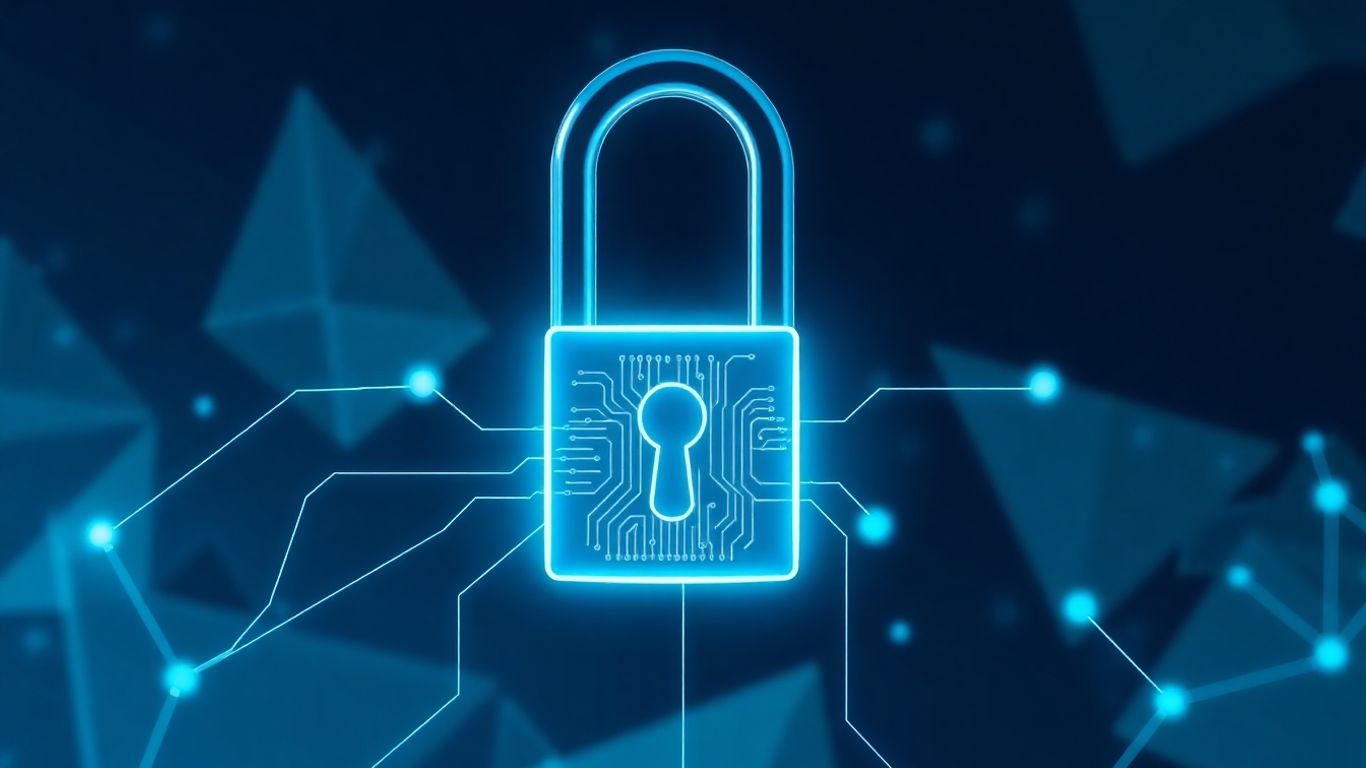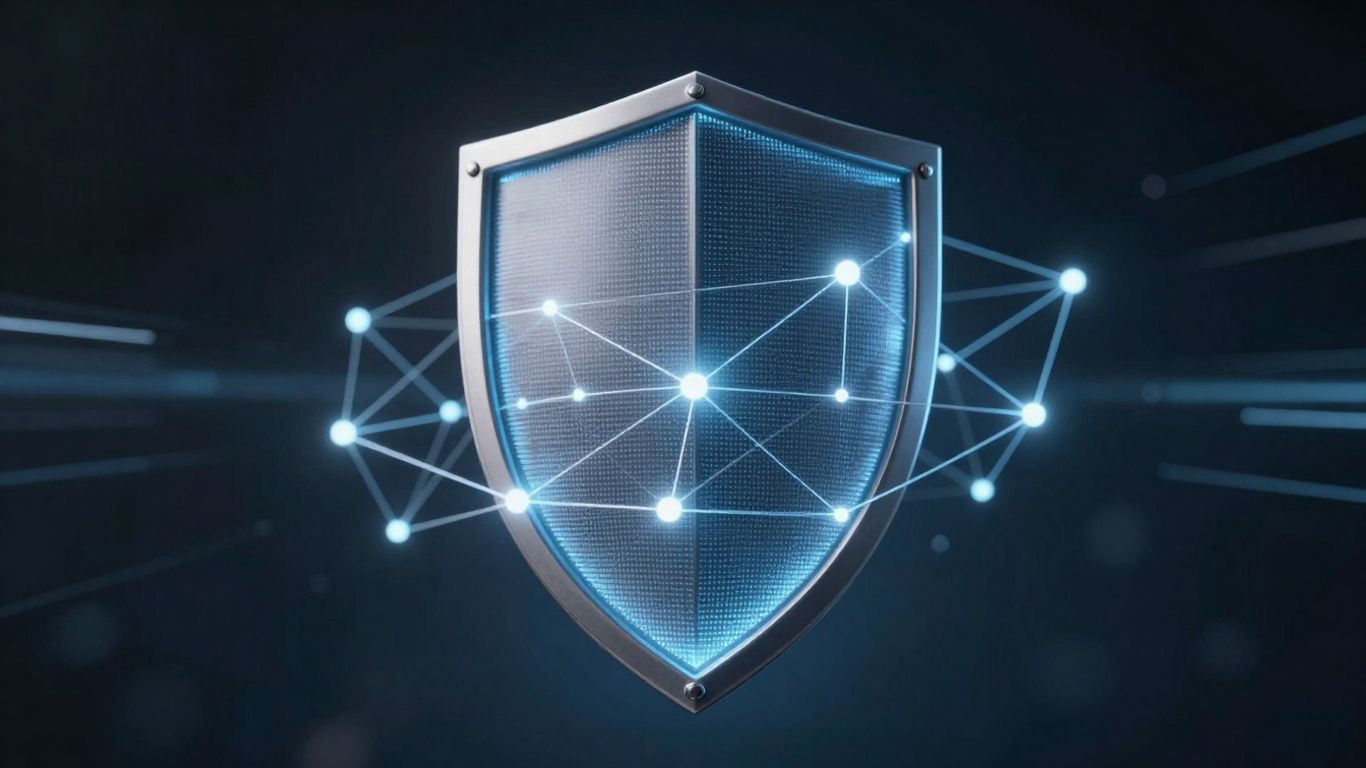[ newsletter ]
Stay ahead of Web3 threats—subscribe to our newsletter for the latest in blockchain security insights and updates.
Thank you! Your submission has been received!
Oops! Something went wrong. Please try again.
Unlock blockchain power with our comprehensive smart contract tutorial. Learn to develop, deploy, and secure smart contracts for various industries.





So, you've heard about smart contracts and blockchain, and maybe you're wondering what all the fuss is about. It sounds complicated, right? Like something only tech wizards can figure out. But honestly, it's not as scary as it seems. Think of smart contracts as digital agreements that basically run themselves, all thanks to the power of blockchain. This smart contract tutorial is here to break it all down, step by step, so you can see how they work and why they're becoming so important.
So, what exactly are these 'smart contracts' everyone's talking about? Think of them like a digital vending machine for agreements. You know how you put money into a vending machine, and it automatically gives you a snack? A smart contract works on a similar principle, but for more complex deals.
At their heart, smart contracts are just computer programs. They live on a blockchain, which is like a shared, super-secure digital ledger. These programs automatically carry out the terms of an agreement when certain conditions are met. The code itself enforces the contract, removing the need for a middleman. This means no lawyers, no banks, no brokers – just code executing exactly as written. The idea isn't entirely new; computer scientist Nick Szabo thought of it back in 1994, long before blockchains were a thing. He used the vending machine analogy then, too.
What makes them special? A few things:
Here’s a quick look at how they stack up against old-school agreements:
So, why are blockchains so important for smart contracts? It's all about the underlying technology. A blockchain provides the secure, decentralized, and transparent environment these contracts need to function reliably. Without it, you wouldn't have the trust and immutability that make smart contracts so powerful. The blockchain acts as the trusted notary and record-keeper for the contract's entire lifecycle. This allows for things like decentralized applications to be built and run securely.
The magic of smart contracts lies in their ability to translate real-world agreements into code that can be automatically executed on a distributed network. This removes ambiguity and the potential for human error or malicious intent, creating a more reliable system for digital transactions and agreements.

Before we get too deep into writing smart contracts, it's important to get a handle on the technology that makes them tick: blockchain. Think of blockchain as the secure, shared notebook where all the smart contract actions are recorded. It's not just any notebook, though; it's one that's copied across tons of computers, making it super hard to mess with.
At its heart, blockchain is a digital ledger. But it's a special kind of ledger. Instead of one person holding it, copies are spread out among many participants in a network. When a new transaction or piece of data is added, it's grouped into a 'block.' This block is then cryptographically linked to the previous one, forming a 'chain.' This linking is what makes it so secure.
There are a few big ideas that make blockchain work for smart contracts:
The way blockchain works means that once a smart contract is put onto it, its rules and the record of its execution are set in digital stone. This removes a lot of the guesswork and potential for disputes that come with traditional agreements.
Not all blockchains are created equal, and different ones are better suited for different tasks. Here are a few you'll hear about a lot:
Choosing the right blockchain platform is like picking the right tool for a job. It depends on what you're trying to build, how fast you need it to be, and who needs to be able to participate.

Alright, so you've got a handle on what smart contracts are and why they're cool. Now, let's get our hands dirty and actually build one. It's not as scary as it sounds, honestly. Think of it like learning to cook a new recipe – you need the right tools, the ingredients, and a clear set of steps.
Before we jump into coding, it's good to know the general flow. It usually looks something like this:
This is where we get our digital workbench ready. You'll need a few things:
Getting all this set up might take a little time, but it's worth it. It means you can experiment freely without worrying about costs or messing up a live network.
Building smart contracts involves a mix of programming and understanding blockchain mechanics. It's about translating real-world agreements into code that can execute automatically and securely on a decentralized network. The goal is to create reliable digital agreements.
Now for the fun part – writing the code! For Ethereum, you'll most likely be using Solidity. A basic contract has a few key parts:
pragma solidity ^0.8.0; is a common example.contract MyContract { ... }uint public myNumber; for an unsigned integer).function setNumber(uint _newNumber) public { myNumber = _newNumber; }.Here's a super simple example of a contract that just stores a number:
// SPDX-License-Identifier: MITpragma solidity ^0.8.0;contract SimpleStorage { uint256 private storedData; function set(uint256 x) public { storedData = x; } function get() public view returns (uint256) { return storedData; }}This contract has two functions: set to store a number and get to retrieve it. It's basic, but it shows the core idea of storing and retrieving data on the blockchain.
So, you've written your smart contract code, maybe using Solidity or another language, and you've tested it to death. Now what? It's time to get it out there on the blockchain. This is where things get really interesting, moving from a digital file to a piece of code that lives and breathes on a distributed ledger.
Think of deploying a smart contract like publishing a book. Once it's out there, it's pretty much set in stone. You send your compiled contract code to a blockchain network, like Ethereum. This action costs a small fee, often called 'gas,' which pays the network's validators for processing and storing your contract. After it's deployed, your contract gets a unique address on the blockchain. This address is how other contracts or users will interact with it. It's immutable, meaning you can't change the code once it's live. If you need to update it, you'll have to deploy a whole new version.
Smart contracts are great at following rules, but they live inside the blockchain bubble. They can't just check the weather or see if a package has been delivered on their own. That's where oracles come in. Oracles are like trusted messengers that bring information from the outside world onto the blockchain. They fetch data from APIs, sensors, or other sources and feed it to your smart contract. It's super important to use reliable oracles because if the data they provide is wrong, your smart contract will execute based on that bad information, leading to unintended consequences.
Once your contract is deployed and has access to external data via oracles, it's ready to do its job. The contract constantly monitors for specific conditions to be met. For example, if it's a contract for a freelance job, it might wait for an oracle to confirm that a project milestone has been completed. When the conditions are met – say, the oracle reports the milestone is done – the contract automatically executes the programmed actions. This could mean releasing payment from an escrow, transferring ownership of a digital asset, or triggering the next step in a supply chain process. This automated execution is the magic of smart contracts, removing the need for manual intervention and reducing the risk of disputes.
The entire process, from deployment to execution, is designed to be transparent and verifiable. Every transaction and every execution is recorded on the blockchain, creating an undeniable audit trail. This makes smart contracts powerful tools for automating agreements and processes with a high degree of trust and efficiency.
Look, nobody wants their digital money or important agreements to just vanish into thin air, right? That’s where smart contract audits come in. Think of it like getting a building inspected before you move in. You want to make sure there are no hidden cracks or faulty wiring that could cause problems later. Audits are basically a deep dive into the code by experts to find any weak spots or mistakes. These aren't just minor typos; we're talking about vulnerabilities that could let someone steal funds or mess with the contract's logic. Without a solid audit, deploying a smart contract is like playing a risky game of chance.
Developing smart contracts isn't just about writing code that works; it's about writing code that's safe and sound. There are a few key things to keep in mind:
Building secure smart contracts requires a mindset shift. It's not just about functionality; it's about anticipating how someone might try to break it and building defenses from the start. This proactive approach saves a lot of headaches down the line.
Sometimes, you just don't have the in-house skills or the time to do all this security work yourself. That's perfectly fine. The trick is finding someone who actually knows what they're doing. A good partner won't just build your contract; they'll have a strong security process built into their work. Ask them about their auditing procedures, what testing methods they use, and if they have experience with common vulnerabilities. Look for teams that are transparent about their security practices. It's better to pay a bit more upfront for a secure contract than to lose a lot more later because of a mistake.
Smart contracts aren't just for tech geeks anymore; they're actually changing how different businesses work, and not just in finance. Think about it: agreements that just do what they say they will, automatically, without needing a middleman to check everything. That's a pretty big deal.
This is probably where you've heard about smart contracts the most. They're the backbone of Decentralized Finance, or DeFi. Instead of going to a bank for a loan, a smart contract can handle it. You put up some crypto as collateral, and the contract automatically releases funds. If the value of your collateral drops too much, the contract can automatically sell it to cover the loan. It cuts out a lot of the old paperwork and waiting.
Here's a quick look at what's happening:
The shift towards automated financial processes means less room for human error and potentially faster access to capital for individuals and businesses alike.
Imagine tracking a product from the factory all the way to your doorstep, and knowing exactly when payments are due at each step. Smart contracts make this possible. When a shipment reaches a certain point, verified by a sensor perhaps, the smart contract can automatically release payment to the supplier. This speeds things up a lot – we're talking about payments going from weeks to maybe just a day or two.
This is a really interesting area. For artists, musicians, or writers, getting paid royalties can be a complicated mess. Smart contracts can change that. You could have a contract that automatically splits any revenue generated from your work – say, a song being streamed – among all the co-creators or rights holders, exactly as agreed. No more chasing down payments or dealing with complex accounting.
So, we've gone through what smart contracts are and how they work on the blockchain. It's pretty neat how they can automate things and make agreements more secure without needing a middleman. Think about it – less paperwork, faster deals, and more trust all around. While it might seem a bit technical at first, the basic idea is simple: code that runs itself when certain conditions are met. As you saw, there are lots of ways businesses can use this, from making payments smoother to keeping track of goods. The technology is still growing, but it's already changing how we do business. Don't be afraid to explore it further; there are plenty of resources out there to help you get started.
Think of a smart contract like a super-smart vending machine for agreements. It's a computer program that lives on a blockchain. When certain conditions are met, it automatically carries out the promises written in its code. It's like a digital agreement that enforces itself, no need for a middleman to make sure things happen.
Blockchain is the perfect home for smart contracts because it's super secure and transparent. Once a smart contract is on the blockchain, it's almost impossible to change or cheat. Everyone on the network can see what's going on, which builds trust and makes sure the contract runs exactly as planned.
Yes, they can! Smart contracts need to know what's happening outside the blockchain to do their job. They use special tools called 'oracles' which are like trusted messengers. Oracles bring real-world information, like weather updates or delivery statuses, onto the blockchain so the smart contract can react to it.
Safety is a huge deal! Before a smart contract goes live, experts carefully check its code for any mistakes or weaknesses, kind of like a security check. Developers also follow special rules when writing the code to make it as secure as possible from the start. It's all about preventing problems before they happen.
Smart contracts can do tons of useful things! They can speed up payments in finance, make sure products move smoothly through supply chains by tracking them automatically, and even help artists get paid fairly for their music or art whenever it's used. Basically, anywhere you have an agreement that needs to be automatically and fairly managed, smart contracts can help.
Creating a smart contract takes some know-how, but it's becoming more accessible. You need to plan out exactly how the contract should work, write the code using special programming languages, and then test it thoroughly. There are tools and platforms that help developers, and many companies offer services to help build and deploy them safely.


